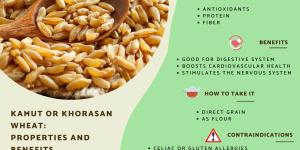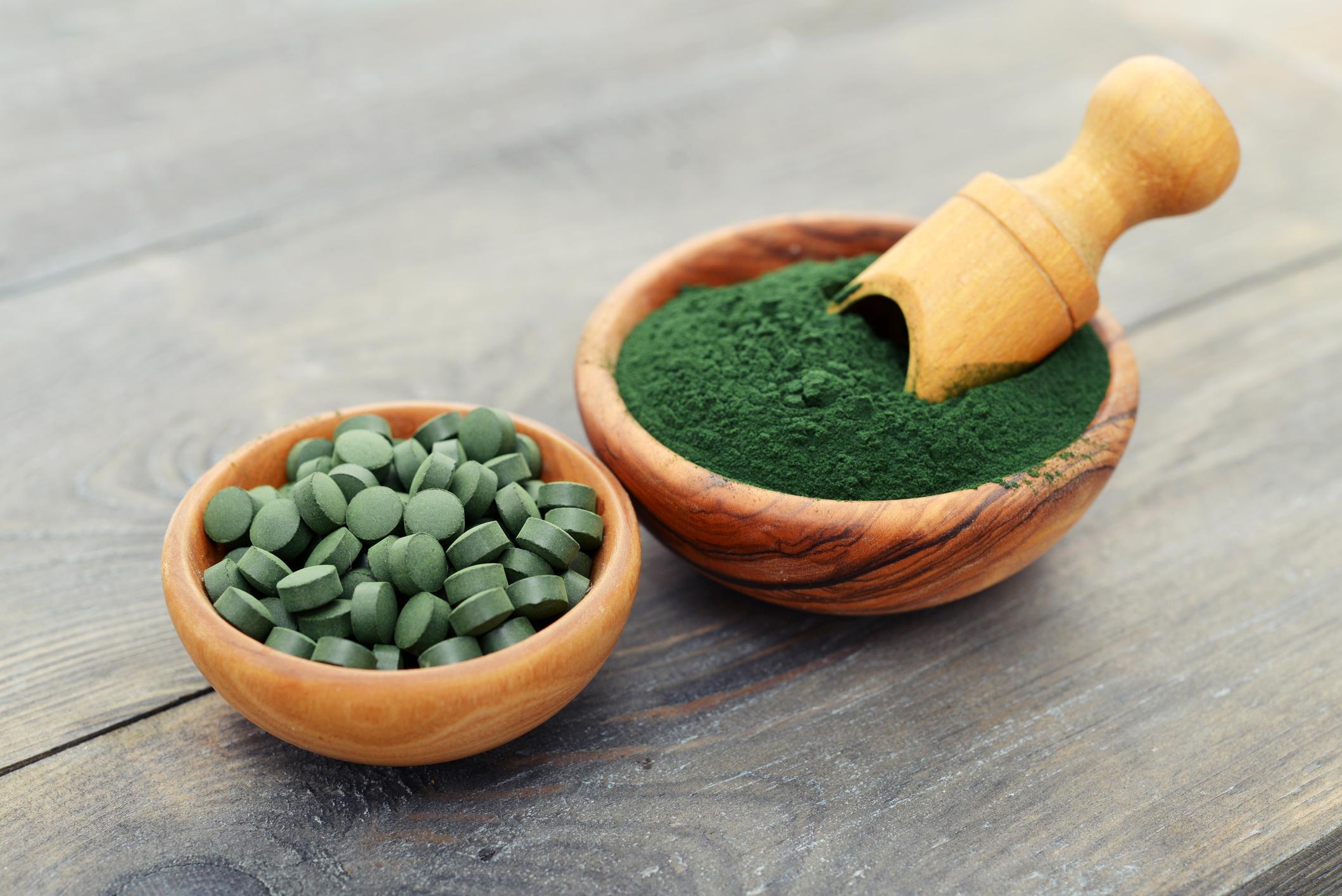Spirulina - What It Is, Properties and Benefits

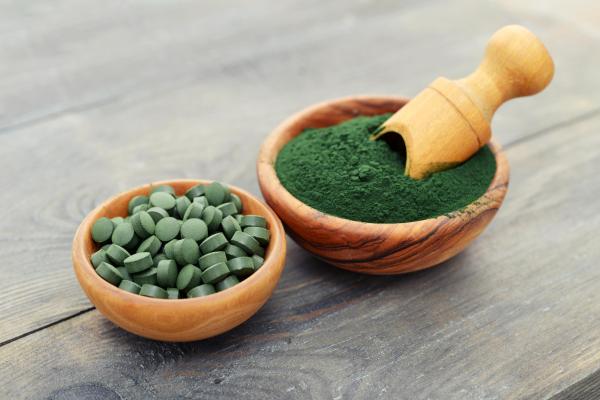
Spirulina is a well-known dietary supplement derived from cyanobacteria, which are bacteria capable of oxygenic photosynthesis. While commonly referred to as blue-green algae, scientific evidence has shown that spirulina is not an algae. Nonetheless, this cyanobacterium has been traditionally consumed worldwide for its impressive nutritional and health-promoting properties, including antioxidant, antiviral, anti-inflammatory, and immunomodulatory effects.
In this article by thedailyECO, we'll provide you with all the information you need to know about what is spirulina, its properties and the many health benefits it can provide.
What is spirulina?
This popular dietary supplement is derived from cyanobacteria, a type of bacteria that can perform oxygenic photosynthesis. While it was once believed to be protistic algae, advances in scientific understanding have confirmed that cyanobacteria are actually bacteria.
Spirulina is specifically derived from filamentous cyanobacteria of the genus Arthrospira, and the main sources are two species: A. platensis and A. maxima. These species grow naturally in tropical and subtropical lakes that have high pH and high concentrations of carbonate and bicarbonate. A. platensis is found in regions of Africa, Asia and South America, while A. maxima is mainly restricted to Central America.
To produce spirulina, it can be cultivated in freshwater ponds under optimal conditions of pH, temperature, and radiation. Once the desired density is reached, it is harvested through a filtration and drying process.
One of the unique properties of Spirulina is its unparalleled nutritional value. No other supplement or food can provide as many nutrients as spirulina, making it a popular choice for those looking to maximize their food intake.
Read this other article if you want to learn more about what cyanobacteria are.
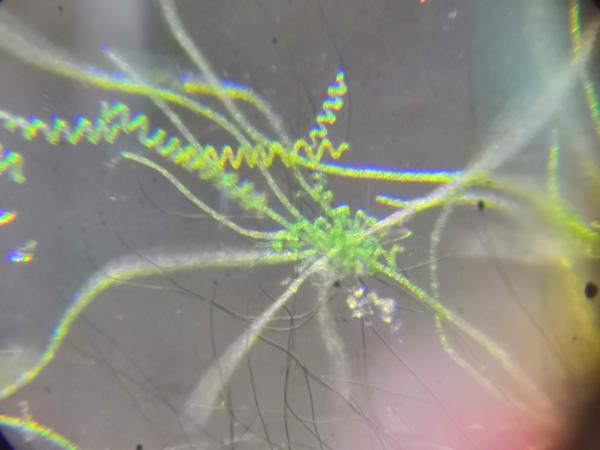
Properties of spirulina
Spirulina has a variety of properties that make it a sought-after dietary supplement. Some of its notable properties are:
- Nutritional value: is a rich source of essential vitamins and minerals such as vitamin B12, iron and calcium, making it a highly nutritious food.
- Antioxidant: contains phycocyanin, a powerful antioxidant that can protect against oxidative stress and reduce the risk of chronic diseases.
- Anti-inflammatory: has been shown to reduce inflammation in the body, which can help prevent chronic diseases such as heart disease, cancer, and diabetes.
- Immunomodulatory: has been found to strengthen immune system function, effectively preventing infection and disease.
- Antiviral: has antiviral properties that can help protect against viral infections.
- Anti-cancer: Some studies suggest that spirulina may have anti-cancer properties, although further research is needed to confirm this.
Overall, the various properties of spirulina make it an extremely useful supplement for promoting health and preventing disease.
Benefits of spirulina
Spirulina is a highly valued dietary supplement due to its many health benefits resulting from the combination of its various components. Spirulina contains high-quality proteins, essential fatty acids like gamma-linolenic acid, minerals such as iron, zinc, and magnesium, vitamins C and E, and carotenoids. Additionally, spirulina contains essential trace elements like iron, iodine, selenium, zinc, copper, manganese, and chromium, which can be further enriched during cultivation.
While research on the benefits of spirulina is still ongoing, there are several potential health benefits associated with its consumption, including:
- Prevention of viral diseases: Spirulina has antiviral effects due to calcium spirulan, a polysaccharide found in cyanobacteria that inhibits the absorption, penetration, and replication of viruses with a capsule, such as herpes viruses and influenza A viruses, among others.
- Slowing of cellular damage: Spirulina's antioxidant properties help to reduce cell damage caused by free radicals.
- Reduced risk of certain cancers: Studies show that the consumption of spirulina reduces the occurrence of liver cancer and causes the regression of precancerous lesions in the oral mucosa.
- Reduction of rhinitis symptoms: Spirulina has been shown to significantly improve symptoms of allergic rhinitis such as sneezing, stuffy nose, and itching.
- Regulation of total cholesterol levels: Spirulina contains phycocyanin C, a protein with antioxidant properties that is thought to contribute to the regulation of total cholesterol levels and improvement of fat metabolism. However, it is important to note that spirulina should not be considered a weight loss supplement on its own, as weight loss requires a combination of various factors.
The multiple health benefits of spirulina make it a popular dietary supplement. However, it is critical to note that further research is needed to fully understand the extent of its potential health benefits.
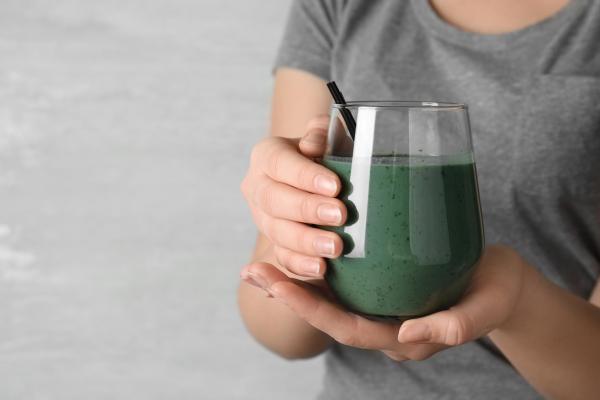
How to take spirulina?
Spirulina is available in different forms such as liquid, tablets, capsules, powder, or flakes, making it convenient to take directly or incorporate into various recipes.
However, the optimal dosage of spirulina for treating different ailments is still unknown. In human studies, the typical daily dose ranges from 1 to 5 grams/day. To ensure safety and effectiveness, it is essential to follow the recommended dosage instructions provided by the manufacturer. Before taking spirulina for therapeutic purposes, it is advisable to consult a healthcare professional to determine the appropriate dosage for individual cases.
As for the duration of spirulina intake, there is no specific time frame, since it varies depending on individual goals and reasons for supplementing with it. It is generally safe to consume spirulina for extended periods, and many people include it in their daily diet as a long-term nutritional supplement.

Contraindications of spirulina
While Spirulina has been deemed safe by the Food and Drug Administration (FDA), it may have contraindications when taken with certain medications.
Individuals with phenylketonuria should avoid taking spirulina due to its high phenylalanine content, which could be harmful to their health. Therefore, it is crucial to consult a medical specialist before taking spirulina, especially if you are taking any medication or have an underlying medical condition.
Furthermore, excessive consumption of spirulina or any other dietary supplement may lead to adverse effects. Hence, it is always recommended to take the dose recommended by the manufacturer and your healthcare provider or specialized therapist.
If you found this information helpful, we invite you to read our other articles on the benefits of other natural sources, such as: benefits of Buddleja globose or Matico and benefits of milk thistle.
If you want to read similar articles to Spirulina - What It Is, Properties and Benefits, we recommend you visit our Healthy foods category.
- Cingi, C., & Sayin, I. (2011). They evaluate the probable therapeutic properties of spirulina.


